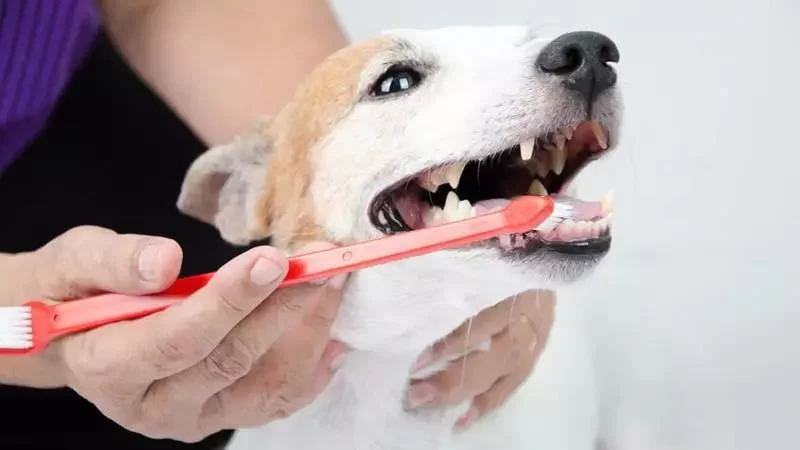Why Pet Dental Health is So Important
When I first adopted my dog, Max, I didn’t think much about his dental health. He was young and energetic, and his bright smile was the last thing on my mind. However, after noticing some bad breath and signs of discomfort when chewing, I realized how important dental care is for pets. Just like humans, pets can suffer from a range of dental issues—from plaque buildup to gum disease—that can affect their overall health.
Good dental health is not just about having a fresh-smelling mouth. It’s about preventing serious health problems like infections, tooth loss, and even more severe conditions like heart disease. That’s when I decided to learn more about maintaining pet dental health. In this guide, I’ll share my journey of understanding pet oral hygiene, tips for keeping your furry friend’s teeth healthy, and why it’s crucial for their well-being.
Understanding the Risks of Poor Pet Dental Health
When it comes to dental care, the risks of neglecting your pet’s teeth can be far-reaching. I learned that dogs and cats can experience many of the same dental problems that humans do, such as:

3809 N Armenia Ave, Tampa, FL 33607, USA
See Details1. Plaque and Tartar Buildup
Just like us, pets accumulate plaque on their teeth. If not cleaned regularly, plaque hardens into tartar, which can lead to gum disease, tooth decay, and infection. I noticed that Max’s teeth started showing signs of plaque buildup around his molars, which led me to start brushing his teeth regularly. Without regular care, plaque and tartar can cause serious issues like gum infection or tooth loss.
2. Gum Disease
One of the most common dental issues pets face is gum disease. It starts as gingivitis (inflammation of the gums) and can progress to more severe periodontal disease, which can cause painful tooth loss. I saw Max struggling with red, swollen gums, which made me realize how important it was to treat gum disease early. Left untreated, gum disease can also lead to infections that affect other organs, such as the heart and kidneys.
3. Bad Breath
Bad breath isn’t just an inconvenience—it can be a sign of poor oral health. Max’s breath started to smell terrible, which led me to investigate the cause. I found out that bad breath is often a result of bacteria in the mouth, caused by plaque and tartar buildup. Since then, keeping his mouth clean has been a priority.
Establishing a Dental Care Routine for Your Pet
After realizing how crucial dental care is for my dog, I started developing a dental routine for Max. It’s not always easy, but with some consistency and patience, I’ve noticed significant improvements. Here’s what I’ve learned about building an effective dental care routine for your pet:
1. Brushing Your Pet’s Teeth
Brushing your pet’s teeth is the most effective way to prevent plaque and tartar buildup. I was initially worried about brushing Max’s teeth because he wasn’t used to it. But with the right tools, such as a pet-friendly toothbrush and toothpaste, it became a part of our routine. I started by gently massaging his gums with my finger before introducing the brush. Over time, Max got used to the process, and now he seems to enjoy it. I brush his teeth at least three times a week to keep his smile healthy.
2. Dental Chews and Toys
In addition to brushing, I discovered that dental chews and toys are great for maintaining Max’s dental health. These items help reduce plaque buildup and satisfy his natural chewing instincts. Max loves chewing on his dental toy, and it helps clean his teeth while keeping him entertained. I also make sure to choose chews that are designed to promote oral health, ensuring that they don’t contribute to other health problems, such as choking hazards.
3. Regular Vet Checkups
It’s crucial to have regular vet checkups to monitor your pet’s dental health. During Max’s annual visits, his vet examines his teeth and gums for any signs of issues. If there are any problems, early intervention can prevent more serious issues down the road. Max had his first professional dental cleaning at the vet’s office, which helped remove stubborn tartar that I couldn’t reach with regular brushing.
Signs That Your Pet Needs Dental Attention
Sometimes, despite your best efforts, your pet might need professional dental care. Here are a few signs that indicated to me that Max needed dental attention:
1. Bad Breath
As I mentioned earlier, bad breath is one of the first signs of dental problems. If your pet’s breath smells foul despite regular brushing, it might be time for a professional cleaning.
2. Difficulty Eating
If your pet seems to struggle with chewing, it could be a sign of dental discomfort. Max started avoiding hard kibble and acting strangely when eating, which prompted me to schedule a dental exam. After a check-up, it was discovered that he had a mild case of gum disease.
3. Excessive Drooling or Pawing at the Mouth
Excessive drooling or pawing at the mouth can indicate pain or irritation in the gums or teeth. These symptoms should not be ignored, as they can be signs of underlying dental issues such as tooth infection or gum disease.
How Hidden Brook Veterinary Can Assist with Your Pet’s Dental Care
At Hidden Brook Veterinary, we offer comprehensive dental care services to ensure your pet’s teeth and gums stay in top shape. From professional cleanings to expert advice on at-home care, our team is committed to helping you maintain your pet’s oral health. Regular checkups and preventative care are key to avoiding serious dental problems, and our team is here to guide you every step of the way.
If you’re unsure about how to care for your pet’s teeth or if you suspect they may have a dental issue, we encourage you to reach out to us for expert advice and personalized care recommendations.











